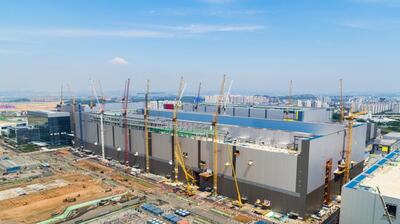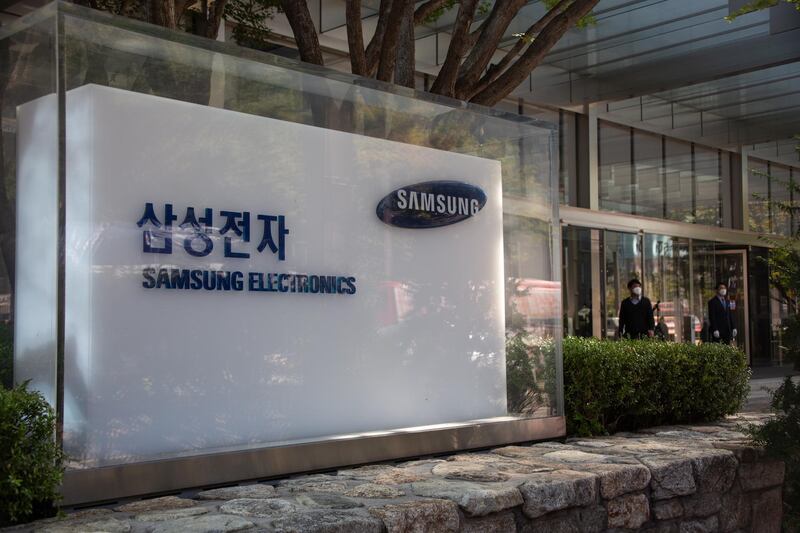Samsung Electronics projected a 58 per cent year-on-year jump in its third quarter profit after its chip business benefited from Huawei's move to stockpile memory chips ahead of the US restrictions.
The world’s biggest smartphone and memory chip manufacturer said on Thursday that operating profit in the three months to September 30 could rise to 12.3 trillion Korean won ($10.6 billion).
This would be its highest quarterly profit since the fourth quarter of 2018 and almost 50 per cent more on a quarter-on-quarter basis.
Earlier, data provider Refinitiv forecast that Samsung’s operating profit would increase by more than 34 per cent to 10.5tn won.
Industry analysts said the South Korean consumer electronics giant’s memory chip business got a massive boost last month after Shenzhen-based Huawei began stocking up semiconductors before the imminent US restrictions.
The restrictions, which were imposed on September 15, prevented the Chinese company from buying chips made using US technology without a licence.
Buoyed by its chip business, Samsung projected its third-quarter sales to surge by 6.5 per cent annually to 66tn won, almost 4tn more than the same period last year.
Samsung did not disclose its net profit or provide details of how its divisions performed. It is expected to provide detailed financial results later this month.
The company has also registered strong chip sales over the past few months as more people worked remotely to contain the spread of the coronavirus pandemic. The pandemic has led to a boom in the global memory chip market, which has seen increased demand from laptop manufacturers and data centres that use chip technology to enhance their storage capabilities.
To meet rising demand, Samsung is ramping up its memory chip production capacity. It started expanding an assembly line in Pyeongtaek in June, with production on the new line expected to start in the second half of next year.
However, analysts predict an oversupply of chips could bring prices down that could affect Samsung’s business in the coming months.
The average selling price for memory chips is expected to remain weak in the fourth quarter of this year, despite many manufacturers stocking up in the wake of the US restrictions on Huawei, according to semiconductor researcher TrendForce.
It predicts prices could decrease by nearly 10 per cent on a quarterly basis.

Samsung’s smartphone business, which was affected by the pandemic as consumers stopped discretionary spending, is also recovering.
Its smartphone sales declined by 28.9 per cent annually to 54.2 million units in the second quarter of this year, according to International Data Corporation.
However, the company is expected to gain lost market share in the third quarter on new products rolled out in the past two months. It is expected to ship 80.6 million smartphones in the third quarter, a 49 per cent increase from the second quarter, according to South Korea-based Daishin Securities.
Apple’s delayed roll-out of its first 5G-enabled iPhones and the US restrictions on Huawei are expected to further help Samsung increase its overall market share, according to analysts.








